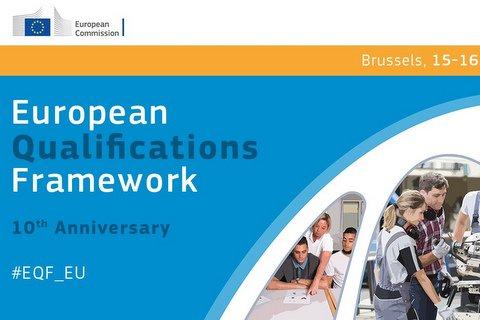
The European Qualifications Framework: a global catalyst for change
The free movement of people in Europe is one of the most important goals of the European Union. But understanding and recognising qualifications from different education and training systems can be a challenge. To address this, the EU established the European Qualifications Framework (EQF) ten years ago.
Since then, the EQF - a translation device to help make national qualifications more readable across borders – has been supporting employers, jobseekers, educators and citizens alike by promoting labour mobility and lifelong learning.
Stakeholders from Europe and the globe gathered in Brussels on 15-16 March for the EQF: supporting learning, work and cross-border mobility conference. The two-day event is an opportunity to reflect upon the impact of the EQF, challenges faced and opportunities for the future. The ETF facilitated a workshop discussions on the EQF’s role in supporting international and global cooperation.
(See Event Analysis on the right hand side of the page for a full insight)
In 2008, when the EQF was set up, only France, Malta the United Kingdom and Ireland had a national framework in place. Ten years on, every Member State has set up a national qualifications framework (NQF), aligned with the EQF.
Considered a global benchmark and catalyst for reform, the EQF’s reach goes beyond Europe’s borders. In fact, 25 of the European Training Foundation’s (ETF) partner countries have an NQF. Montenegro, Kosovo*, Turkey, Macedonia are already referenced to the EQF. The ETF continues to work with all partner countries to improve their frameworks (See ToolBox).
For more information on the EQF, visit the webpage.
* This designation is without prejudice to positions on status, and is in line with UNSCR 1244 and the ICJ Opinion on the Kosovo declaration of independence
Did you like this article? If you would like to be notified when new content like this is published, subscribe to receive our email alerts.